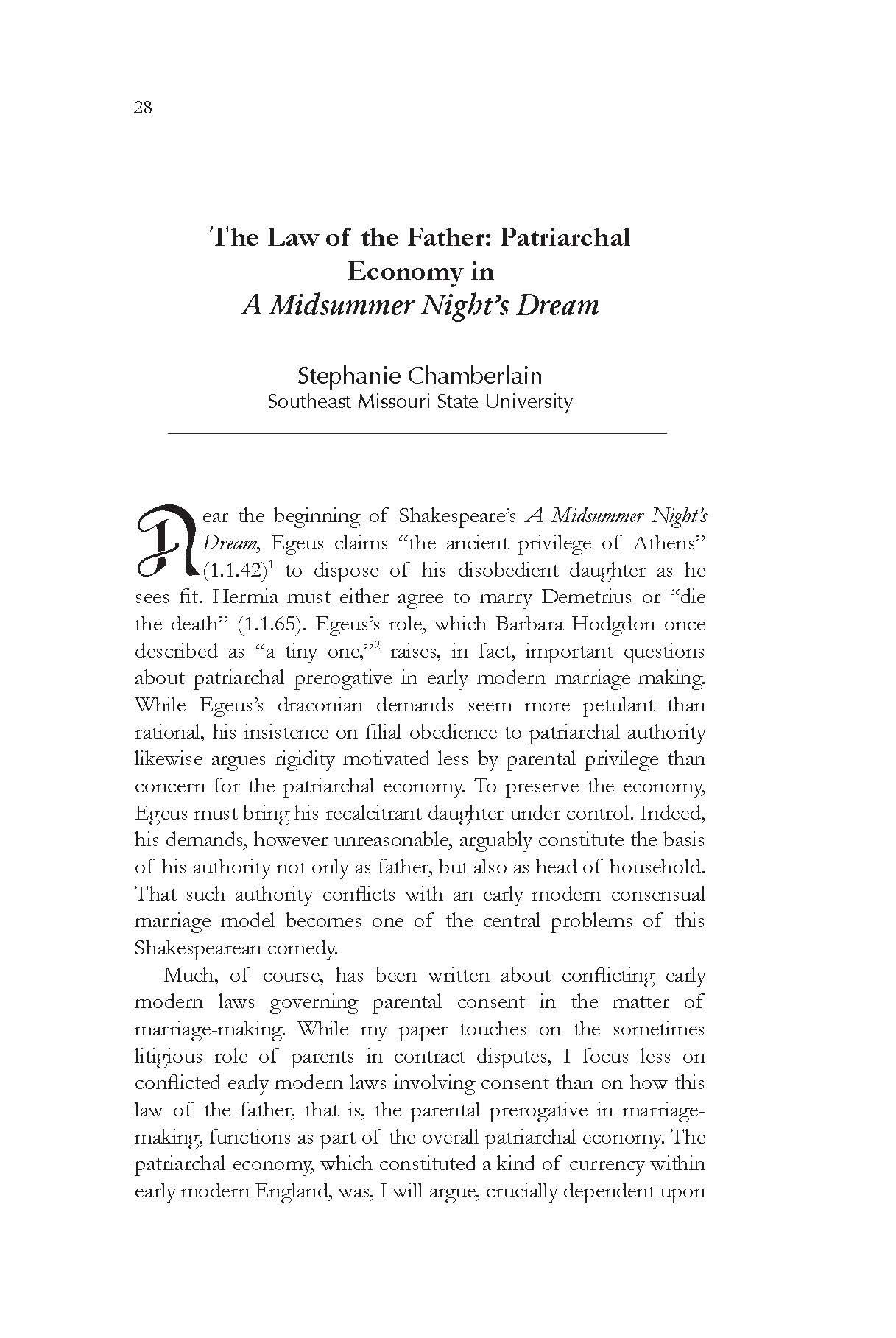The Law of the Father: Patriarchal Economy in A Midsummer Night’s Dream
Main Article Content
Abstract
Near the beginning of Shakespeare’s A Midsummer Night’s Dream, Egeus claims “the ancient privilege of Athens” (1.1.42)1 to dispose of his disobedient daughter as he sees fit. Hermia must either agree to marry Demetrius or “die the death” (1.1.65). Egeus’s role, which Barbara Hodgdon once described as “a tiny one,”2 raises, in fact, important questions about patriarchal prerogative in early modern marriage-making. While Egeus’s draconian demands seem more petulant than rational, his insistence on filial obedience to patriarchal authority likewise argues rigidity motivated less by parental privilege than concern for the patriarchal economy. To preserve the economy, Egeus must bring his recalcitrant daughter under control. Indeed, his demands, however unreasonable, arguably constitute the basis of his authority not only as father, but also as head of household. That such authority conflicts with an early modern consensual marriage model becomes one of the central problems of this Shakespearean comedy.
